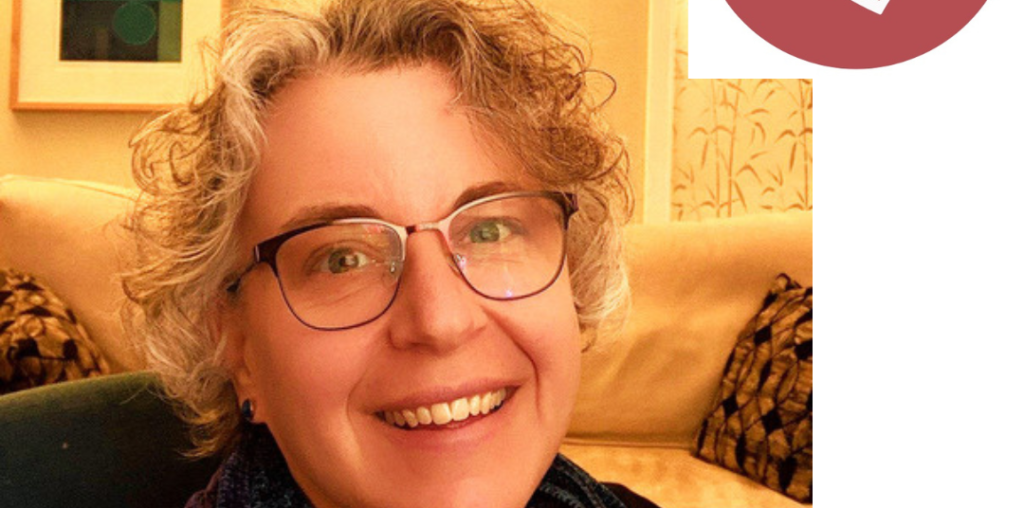This is such an interesting question because it assumes that this is one of our jobs as a parent. That we are supposed to tell kids not to be scared and sometimes that’s true. Sometimes our job is to be reassuring. Like when a child is afraid of going to the doctors, and we sit down and explain what’s going to happen and maybe buy them a toy doctor’s kit so they can process their emotions through play. But does that mean that if they’re still scared that we’ve somehow failed them? Or that they’ve failed to process their experience correctly?
I mean this question really gets at the nature of fear and how we feel about fear and how we feel about our kids feeling fear.
Ok, let’s back up.
First, fear is not a bad emotion to have. Fear is supposed to keep us safe. Fear is a warning signal to be careful, to keep your eyes open. Fear is ok. It’s not comfortable but it serves a purpose.
We are going to be afraid sometimes. We are going to be afraid of new experiences sometimes just because they’re new. We’re going to be afraid of situations like going to the doctor’s if last time we got a shot. It makes sense that we would be nervous about going again even if we’re not going to get a shot this time.
What I’m getting at is that the issue isn’t fear really. The issue is letting fear get the best of us. Fear is a tool and we need that tool but we need to be discerning about using it.
Being afraid is ok. Sometimes it’s even more than ok, it’s super smart. We need to learn when our fear is helpful — like when it’s telling us to back away from the cliff or not go into that dark attic in the haunted house or study for the test in order to get a good grade.
And we also need to learn when it is NOT helpful like when it’s telling us not to ever go on the hike or that every house is haunted or that we shouldn’t even bother to take the class because it will be too hard.
We need to learn when our fear is protective and when it is avoidant. Or more to the point, we need our children to learn when fear is protective and when it is avoidant.
The question, “How do I explain to my anxious child that they don’t need to be scared?” Might be better asked this way, “How do I support my anxious child when they are scared.” And you’ll see we’ve shifted from trying to FIX what’s happening or our child and moved to helping them learn the skills to manage the experience themselves.
When our children are afraid, we can validate the feeling without validating the fearful thing or event itself. By this I mean, we can say, “I know you feel scared,” which is validating without rushing to reassurance or to avoidance. So we don’t have to say, “I know you feel scared but there are no monsters under the bed” or “I know you feel scared so why don’t I sleep in here with you.” What we could say is something like, “I know you feel scared, what do you think would help you know that you are safe.”
It doesn’t have to be these exact words and it doesn’t have to be handled this way every time, I’m just using this as an example to start shifting the conversation and shift to honoring and supporting your child’s agency.
Anxiety offers an invitation to be curious. What might happen? What could we do to explore that? We could invite our child to look under the bed with us. We could give our child a flashlight and invite them to look for monsters. I’ve had lots of kids who have found it helpful to create a sign for their bedroom doors that says, “No monsters allowed.”
When we do the reassuring, we create a dependency on being the source of reassurance. When we give them the means to explore and confront and cope with their fears, we are giving them opportunity to be brave.
Let’s try another scenario.
Let’s say an older child is anxious about a big paper that’s due and they are coming to us for reassurance that it’s good, that they’ve written a great paper. Now there’s nothing wrong with telling them, “You’ve done an excellent job on this paper” or “You can really see your hard work in this paper.” But when they start saying, “But will my teacher like it?” No amount of our reassuring them is going to be enough. So instead we can say, “You worked really hard on this; no wonder you’re anxious to know what your teacher will think of it.” And then we can invite curiosity. “What would happen if your teacher didn’t like it? What would you do? Would that change the way you felt about it?” There’s no right answer there, it’s just a chance to be curious. It’s just the chance to be curious about problem solving, like would you ask for extra credit work? Would you ask for a meeting to argue for a better grade? Or it might be an opportunity to talk about evaluation and what it means to be evaluated and explore our philosophies. Like does someone else’s judgment negate our own? Like can we separate our pride in our work from grades, which can sometimes be so subjective? Again, no right answer. But we’re building up critical thinking, the ability to problem solve, and reiterating our family values around work and judgment and the ways we interact with the great big wide world.
I think this question helps us, too, to see that parenting an anxious child is not just about parenting an anxious child. It’s about parenting, period. It’s about learning and growing and coping with who we are and what we want from the world and how to operate even when things are uncertain or unpredictable or outright scary.
If you are thinking of joining Child Anxiety Support for more specific concrete answers — ones that apply to your unique family and go beyond what we can do in these short podcasts, please know that starting in April we will be going through the 6-week Strong Kids, Strong Families program together. My membership is always open, which means you can join at any time and take the course at your leisure. Each of our weekly live events will be focused on that week’s lesson so that we can dive in deep. I am always available to give you personalized support, so that together we design a concrete, step-by-step plan to address your child’s particular anxiety. Whether that’s sleep or behavior or separation or school, this evidence-based program will give you the information and tools you need to address your child’s anxiety across a lifetime.
Just head to childanxietysupport.com and remember that you get the first 14 days free. Have questions?
Reach out to me at dawn@childanxietysupport.com or through instagram where I’m at dawnfriedmanmsed. I look forward to hearing from you.



